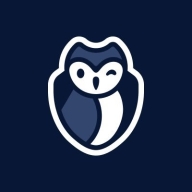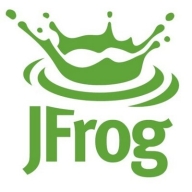

JFrog Xray and GitGuardian Platform are competing products in the realm of security and vulnerability management. JFrog Xray seems to have the upper hand in ease of integration and broader ecosystem compatibility, while GitGuardian Platform excels with its robust secret detection capabilities and seamless code security integration.
Features: JFrog Xray stands out with its deep-level scanning capabilities in binary repositories and CI/CD integrations, offering comprehensive risk and impact analysis within the DevOps pipeline. It also provides native integration with Artifactory. GitGuardian Platform specializes in real-time detection of secrets in source code and offers strong integration with popular version control systems, along with automated validity checks and broad detection capabilities for various secret types.
Room for Improvement: JFrog Xray could enhance its user interface to be more intuitive for non-technical users and streamline the configuration process for setting up new repositories or pipelines. It might benefit from improving the depth of its reporting capabilities. GitGuardian Platform could improve by offering more granular control over false positives and enhancing its notification system for critical alerts. Expanding support for additional programming languages and environments could also be advantageous.
Ease of Deployment and Customer Service: JFrog Xray offers flexible deployment models including on-premise, cloud, and hybrid options, along with extensive documentation and reliable support channels. GitGuardian Platform provides a straightforward cloud-based deployment process with proactive customer support, making it simple to implement and use, particularly for environments focused on code security.
Pricing and ROI: JFrog Xray has a tiered pricing model that can involve higher initial setup costs, potentially resulting in a slower ROI. Its extensive features can justify the cost for larger enterprises. GitGuardian Platform offers a competitive pricing structure aligned with its specific focus, potentially offering faster ROI through efficient security breach detection and prevention. Its cost-effective model delivers rapid value, especially in code security environments.
I can certainly say that we have saved significant time and resources in terms of people and automation.
The majority of our incidents for critical detectors and important secret types are remediated automatically or proactively by developers through GitGuardian's notification system, without security team involvement.
It effectively helps us with credentials security and has been performing satisfactorily.
I would rate their technical support a nine out of ten.
I would rate the technical support as excellent.
When we need clarifications, we contact our account manager, and they arrange demos.
On a scale of 1 to 10, I would rate the technical support of JFrog Xray an eight because they are very knowledgeable.
In terms of scalability, I would rate it around a ten out of ten, as it handles all the repositories and commit activity we have.
I would rate it a ten out of ten for scalability.
Currently, what GitGuardian Platform is doing works effectively.
According to my use case, it is highly scalable.
We set up a lot of the repository, so GitGuardian is a required check.
The SaaS platform has experienced two significant moments of downtime or instability in the last six months, requiring notices and retrospectives.
I would rate the stability of the GitGuardian Platform as excellent with no downtimes.
I use JFrog Xray primarily for security purposes, and I find it reliable.
We did experience crashes, downtimes, and performance issues with JFrog Xray.
Another thing that would be good to see is some more metrics on the usage of the GitGuardian pre-push hooks.
The self-healing activity by developers isn't reflected in the analytics, requiring us to collect this data ourselves.
We are looking for better metrics and audit data, wanting more features such as knowing which users are creating the most secrets or committing the most secrets, what repository, what directory, and who is not checking in secrets.
When we have given a very long tag, it doesn't work as expected and requires excessive scrolling.
somehow you need to adapt your GitLab pipeline and turn them into JFrog pipeline, and this is something they don't really advertise at first—you're obliged to use the JFrog CLI.
X-ray needs improvement in supporting more than one database, as it currently only supports PostgreSQL.
Overall, the secret detection sector is expensive, but we are happy with the value we get.
It's fairly priced, as it performs a lot of analysis and is a valuable tool.
JFrog Xray provides a free trial of 14 days.
The basic scanning capabilities come with Artifactory, however, curation requires additional licenses.
One of the best features of the solution is the ability to use pre-push hooks.
A high number of our exposures are remediated by developers before security needs to step in, as the self-healing playbook process engages them automatically.
GitGuardian Platform performs the capability to detect secrets in real time exceptionally, as it activates from the commit and can detect it immediately.
The most valuable features of JFrog Xray are its curation capabilities, its native integration with Artifactory, scanning for vulnerabilities, and license compliance features.
The policy-driven approach of JFrog Xray helped me maintain security standards by integrating it in the development pipeline.
With other registries such as ECR, we can use the images only in the AWS cloud. With JFrog, we can use this registry from any cloud or work locally as well.
| Product | Market Share (%) |
|---|---|
| JFrog Xray | 16.3% |
| GitGuardian Platform | 2.5% |
| Other | 81.2% |


| Company Size | Count |
|---|---|
| Small Business | 10 |
| Midsize Enterprise | 9 |
| Large Enterprise | 13 |
| Company Size | Count |
|---|---|
| Small Business | 1 |
| Midsize Enterprise | 3 |
| Large Enterprise | 6 |
GitGuardian is an advanced secrets security platform that strengthens Non-Human Identity security and ensures compliance with industry standards by detecting and managing secrets in development environments.
GitGuardian integrates Secrets Security and Secrets Observability, facilitating the detection of compromised secrets and managing legitimate secrets' lifecycle. Supporting over 450 types of secrets, the platform offers public monitoring for leaked data and employs honeytokens as an added defense. Trusted by over 600,000 developers, organizations such as Snowflake and ING rely on GitGuardian for robust secrets protection.
What features define GitGuardian?
What are the key benefits when evaluating GitGuardian?
In sectors like healthcare and telecommunications, GitGuardian is implemented for detecting and managing the exposure of sensitive information in code repositories. Teams benefit from its ability to integrate with platforms such as GitHub, allowing for immediate alerts and efficient remediation of security risks, enhancing application security by safeguarding operational environments.
JFrog is on a mission to enable continuous updates through Liquid Software, empowering developers to code high-quality applications that securely flow to end-users with zero downtime. The world’s top brands such as Amazon, Facebook, Google, Netflix, Uber, VMware, and Spotify are among the 4500 companies that already depend on JFrog to manage binaries for their mission-critical applications. JFrog is a privately-held, global company, and is a proud sponsor of the Cloud Native Computing Foundation [CNCF].
If you are a team player and you care and you play to WIN, we have just the job you're looking for.
As we say at JFrog: "Once You Leap Forward You Won't Go Back!"
We monitor all Software Supply Chain Security reviews to prevent fraudulent reviews and keep review quality high. We do not post reviews by company employees or direct competitors. We validate each review for authenticity via cross-reference with LinkedIn, and personal follow-up with the reviewer when necessary.